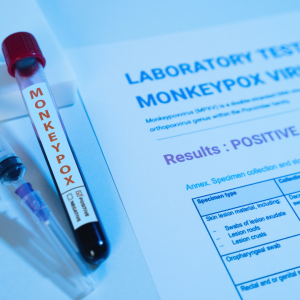Monkeypox: What You Need to Know

Wondering about the latest news reports about monkeypox in the United States? The Centers for Disease Control and Prevention as well as the Illinois Department of Public Health are closely monitoring the outbreak and working to educate the public. Here’s what we know:
Monkeypox is spread through direct contact with an infectious rash, scabs or body fluids; respiratory secretions during prolonged face-to-face contact or intimate physical contact; touching objects or fabrics previously touched by the rash or body fluids of someone with monkeypox; or being scratched or bitten by an infected animal.
Monkeypox causes a rash, and it can spread from the time symptoms start until the rash has fully healed and a fresh layer of skin has formed – usually several weeks. Monkeypox can be acquired by all people, regardless of gender identity or sexual orientation.
Below are answers to some frequently asked questions about monkeypox.
- History of monkeypox: monkeypox is a rare disease caused by the monkeypox virus, part of the same family as smallpox, though typically less severe. Generally occurring in remote parts of Central and West Africa, the virus was first detected in captive monkeys in 1958. The first human case was recorded in 1970.
- Symptoms: initial symptoms of monkeypox include fever, headaches, muscle ache, swollen lymph nodes, other swelling and back pain. Patients typically develop a rash one to three days after the appearance of fever, often beginning on the face and spreading to other parts of the body, such as the palms of the hands and soles of the feet. The rash, which can cause severe itching, then goes through several stages before the legions scab and fall off. The infection typically lasts two to four weeks and usually clears up on its own.
- Treatment: there are currently no proven, safe treatments for monkeypox, though most cases are mild. Antiviral drugs and vaccines developed to protect against smallpox may be used to prevent and treat monkeypox virus infections since the two have a similar genetic makeup.
If you experience new rashes or are concerned about monkeypox, contact your healthcare provider.